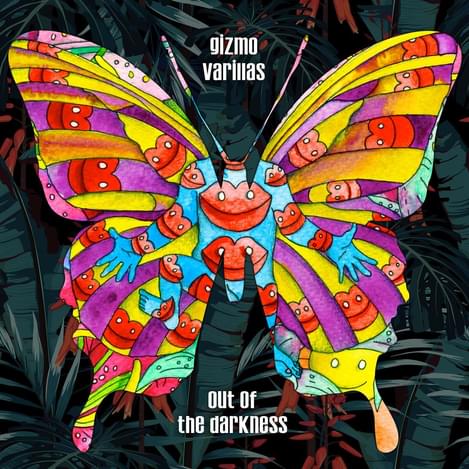Gizmo Varillas' intentions fail to translate on his politically charged new offering
"Out Of The Darkness"

After all, art is an expression but also a reaction; to trauma, to the urge to dance and to the world at large. In America, a country currently alight, political songs are politicised further as campaign songs, and the Hilary Clinton campaign in 2016, which failed to energise the voting public even against the prospect of a President Donald Trump, was soundtracked by a triage of three equally empty power ballads: “Fight Song” by Rachel Platten, “Roar” by Katy Perry and “Brave” by Sara Bareilles, tunes bland enough to enrage nobody and inspire fewer.
The turbulent years since that historic election campaign are the inspiration for Spanish multi-instrumentalist Gizmo Varillas’ latest album. But, like “Fight Song”, “Roar” and “Brave” before it, this is political music which relies on nothing but vague sentiments of hope and change which stir nothing but boredom. A Spanish man living in London; his formative years were split between the two countries and this very fact made him an outsider to both. Varillas must be acutely attuned to change then and, like many, surely feels on a visceral level the political turmoil in his adopted and native countries. What he lacks however is the ability to translate his words into anything beyond sweeping statements and well-worn banalities.
Out Of The Darkness is an almanac of several dozen popular platitudes far beyond the point of inspiring feeling or symbolising much. The track list reads like the tea towel selection in a gift shop: “Born Again”, “Love Over Everything”, “Rise”, “Burning Bridges” - the titles come thick and fast and within the songs there’s little more distinct. “Through all the highs and all the lows/I’ve learnt to live I’ve learnt to grow/With only hope in my heart/I found my way through the dark”, he sings on the second track, but saying the word ‘hope’ doesn’t inspire it. I feel confident that from these words nobody will learn anything about their author, or recognise their own personal “darkness”, which good songwriting reflects back like a mirror.
Approaching the same level of invention are the instrumentals, which tease international styles and yet capture none of their urgency or energy. The opening track begins promisingly with some rustling Spanish guitar and a blues riff straight out of the Tinariwen playbook but Varillas fails to build them into a dynamic song: the same riffs repeat stiffly and faint disco-stylings limply enter the mix. Dance music is a major reference point through the album but there’s little danceable here, and similar choruses come and go unremarkably. “Saving Grace” features the late, great Tony Allen on drums, and it’s the only time I’ve heard his playing sound tame.
The title track apes the woodwind synth patches of Francis Bebey, but while the Cameroonian pioneer would have cooked them into a sticky, amorphous groove, Varillas just limply strums his guitar and leaves it there. Varillas played the album mostly alone and it takes clear talent to do so, but I can’t help but imagine how some friends in the studio would help cook up some dynamism.
Varillas claims that with these songs he strove for “a universal truth that we all connect with” but little about social change is universal; it’s often individual ideology writ large, and great political songwriting conveys those specific ideas commandingly. For now, these songs seem destined to soundtrack decisions only as large as “do you want sugar with that?”, or perhaps find a slot on tour with Biden 2020.
Get the Best Fit take on the week in music direct to your inbox every Friday

Lorde
Virgin

OSKA
Refined Believer

Tropical F*ck Storm
Fairyland Codex





